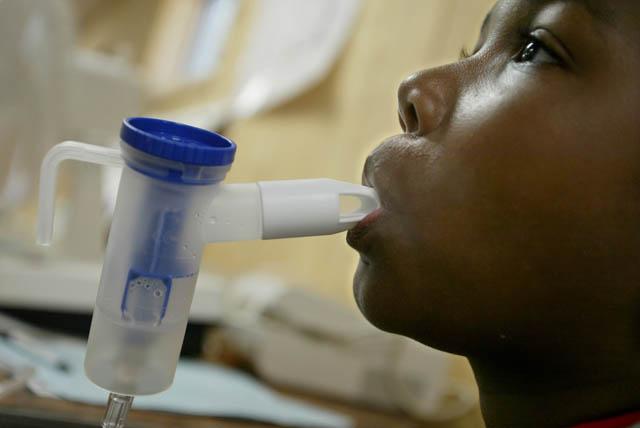You are here
Good asthma management may stave off kids’ anxiety
By Reuters - May 25,2014 - Last updated at May 25,2014

NEW YORK – Children with asthma are no more likely than their peers to suffer mental health problems — provided their asthma is well-controlled, according to Dutch researchers.
“The original literature, mostly from America, suggested that kids with asthma were at risk for anxiety, depression and low self-esteem, but that’s not what we’ve encountered in our clinical practice,” said the lead author of a new study, Professor Paul Brand, who works with asthmatic children at Princess Amalia Childrens Centre at Isala Hospital in Zwolle, The Netherlands.
Earlier research probably included many children who did not take their daily medications as prescribed, he said. When kids take the necessary medicines, they don’t appear to be any worse off psychologically than other children.
He and his team compared 70 children from their clinic with mostly well-controlled asthma and aged 8 to 15 years old, to 70 of their friends, who were similar in many ways but did not have asthma.
All the children filled out age-appropriate questionnaires meant to assess depression, anxiety and self-esteem. They also answered questions about how well they controlled their wheezing and symptoms.
Hospital data included how long the children with asthma had the condition, their medication use and exposure to tobacco smoke.
Only 10 of the children with asthma didn’t have it well controlled, meaning they had had an instance when asthma had worsened in the past year, less than healthy lung function and a low score on the asthma management scale.
On the whole, asthmatic kids and their healthy peers scored about the same on the psychological assessments, the authors write in the journal Archives of Disease in Childhood. Between 10 and 20 per cent of kids in both groups showed signs of depression, anxiety or low-self esteem.
But kids with poorly controlled asthma tended to score higher on the anxiety questionnaire than kids with well controlled asthma.
“It was sort of common sense that if you are doing well with any kind of chronic illness you won’t have the psychological risks,” Dr Andrew Ting told Reuters Health by phone.
Ting, who wasn’t part of the study, specialises in paediatric pulmonology at Mount Sinai Hospital in New York.
It is very possible to control asthma completely, Brand told Reuters Health by phone.
“If you can work with kids and their parents to agree on daily use of inhaled corticosteroids and appropriate use of rescue medications when necessary, you can really control most asthma,” he said.
A rescue inhaler, like Albuterol, helps to relax the airways during an asthma attack. Children with persistent asthma should also be using a corticosteroid inhaler, like Advair, every day to help reduce airway inflammation and lower mucous levels, he said.
But many children don’t use their daily inhaler, Brand said. “In order to insure adherence, you need to invest in the relationship with kids and their parents,” which is more common in western Europe than in the US, he noted.
“The question is, how do you do that in today’s medical economic climate; how do you carve out the time to make that kind of a relationship with the patients?” Ting said.
It’s impossible to really encourage patients to adhere to a good action plan in a five to ten minute doctor’s visit, he said. At Mount Sinai they have a social worker go over the asthma management plan with patients in more detail outside of a doctor’s appointment, but many places don’t have that resource.
“If parents find out that their kids have asthma symptoms that keep occurring it is possible that the child is not taking their medication at all,” Brand said. “If they deny the disease and don’t take the meds, they will be suffering more.”
Kids might be less likely to use their inhalers in front of friends because of the social stigma, Ting said, but if they take their corticosteroid every day it is less likely that they will have to do that.
With proper medication use, kids should be able to play sports and activities and be at no increased risk of anxiety or depression, he said.
Related Articles
Corticosteroid drugs given via inhalers to children with asthma may suppress their growth, according to two systematic reviews of scientific studies on the issue.
Women with asthma who use short-acting inhalers to control symptoms may take longer to conceive than women without asthma, a recent study su
Kids with asthma may struggle more in school when their symptoms are not well-controlled, and minority students with this breathing disorder


















